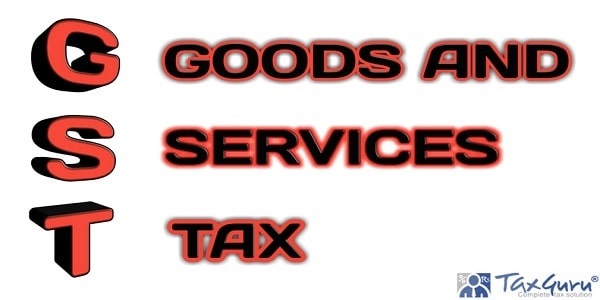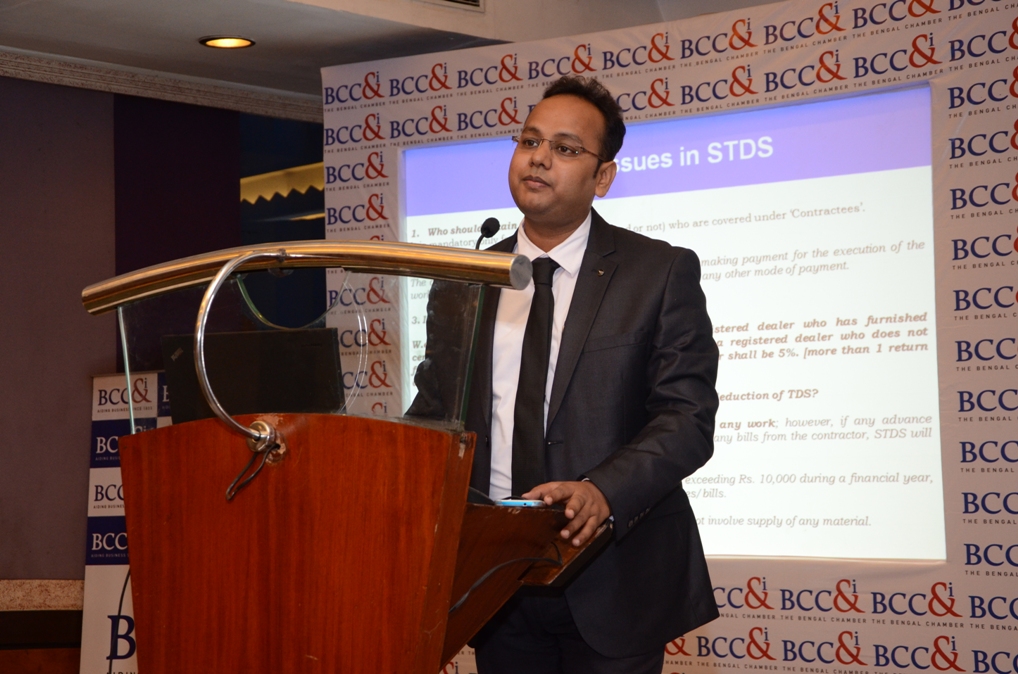Analysis of Circular No. 159/15/2021-GST: Clarification on Doubts Related to Scope of Intermediary
I. Evolving Jurisprudence in GST on Intermediary Services:
Case Laws:
1. 2021-VIL-458-BOM: DHARMENDRA M. JANI Vs UNION OF INDIA AND OTHERS held as under:
Challenge to Constitutional validity of 13(8)(b) and section 8(2) of the IGST Act, 2017 to the extent that it seeks to levy GST on services provided to, used and consumed by recipients located outside India and treating the same as intra-state supply leviable to GST

Per UJJAL BHUYAN, J. – The Constitution does not empower imposition of tax on export of services out of the territory of India by treating the same as a local supply. Petitioner fulfils the requirement of an intermediary as defined in section 2(13) of the IGST Act. Further, all the conditions stipulated in sub-section (6) of section 2 for a supply of service to be construed as export of service are complied with. Therefore, it is an ‘export of service’ as is understood in ordinary common parlance
– section 13(8)(b) of the IGST Act read with section 8(2) of the IGST Act has created a fiction deeming export of service by an intermediary to be a local supply. It is apparent that section 9 of the CGST Act cannot be invoked to levy tax on cross-border transactions i.e., export of services.
– Per ABHAY AHUJA, J. – Having noted the Judgment and Order as pronounced by Shri Justice Ujjal Bhuyan, he recorded his separate and diverse opinion in the matter
2. 2020-VIL-341-GUJ: MATERIAL RECYCLING ASSOCIATION OF INDIA VS UNION OF INDIA held as under:
The person who is intermediary cannot be considered as exporter of services because he is only a broker who arranges and facilitate the supply of goods or services or both. There is no distinction between the intermediary services provided by a person in India or outside India
There is no deeming provision as canvassed by the petitioner, there is stipulation by the Act legislated by the parliament to consider the location of the service provider of intermediary to be place of supply. The provision of Section 13(8)(b) r/w Section 2(13) of the IGST Act, 2017 are not ultra vires or unconstitutional in any manner – While it is held that the provisions for intermediary services are constitutional, it would be open for the respondents to consider the re-presentation made by the petitioner to redress its grievance in suitable manner and in consonance with the GST provision
3. 2021-VIL-224–AAR: DUBAI CHAMBER OF COMMERCE AND INDUSTRY held as under:
– Applicant is located in India and represents its Dubai Head Office and as a representative of the Dubai office,
– the applicant connects businesses in India with business partners in Dubai
– there is supply of services by the applicant to various businesses in India and Dubai and such supply is done by the applicant as an intermediary
– the applicant satisfies all the conditions of an intermediary – in terms of Section 13(8) of the IGST Act the place of supply in subject case of the applicant as an intermediary would be the location of the supplier of services
– activities under taken by the applicant is nothing but “Business”. The term “Supply” and “Business” are defined under GST Act, in an inclusive manner and have wide connotations – Activities undertaken by the applicant are covered by the scope of word “Commerce”, “Business” and also covered under the scope of “Supply”
– the applicant is required to obtain GST registration and pay applicable GST
4. NOTIFICATIONS:
N. No. 9/2017 (IGST)(R), Item No 12AA Exempts Services provided by an intermediary when location of both supplier and recipient of goods is outside the taxable territory. The exemption is subject to the following documents shall be maintained for a minimum duration of five years:
1) Copy of Bill of Lading
2) Copy of executed contract between Supplier/Seller and Receiver/Buyer of goods
3) Copy of commission debit note raised by an intermediary service provider in taxable territory from service recipient located in non-taxable territory
4) Copy of certificate of origin issued by service recipient located in non-taxable territory
5) Declaration letter from an intermediary service provider in taxable territory on company letter head confirming that commission debit note raised relates to contract when both supplier and receiver of goods are outside the taxable territory]
5. SERVICE TAX: 2021-VIL-130-CESTAT-BLR-ST: CSG SYSTEMS INTERNATIONAL (INDIA) PVT LTD VS COMMISSIONER OF CENTRAL TAX, BENGALURU SOUTH COMMISSIONERATE, held as under:
– Rejection of refund claim on the ground that the BAS provided by the appellant to its group companies outside India cannot be treated as export of services and falls under ‘Intermediary Services’ – denial of refund for reasons beyond the show-cause notice
– HELD – the appellant has proved by referring to Master Service Agreement that the sales marketing and support services provided to its group companies are export of service because the said services have been provided on principal to principal basis and there is no element of principal-agent relationship – the Commissioner (Appeals) has selectively picked up the clauses in the Master Agreement without analyzing the agreement as a whole – the appellant has satisfied all the six conditions of Rule 6A which proves that these services rendered by them are export of service – the impugned order is bad in law as it has travelled beyond the show-cause notice and also on merit as the services rendered by the appellant fall in the definition of ‘Export of Service’ and the appellant is entitled to refund
6. ANDHRA PRADESH AAR: 2021-VIL-299-AAR: M/S DKV ENTERPRISES PRIVATE LIMITED, held as under:
Applicant claims that only marketing consultancy service is being done by them in India on behalf of foreign company and their billing is directly done to foreign company in foreign currency and paid by inward remittance
– HELD – The case law relied by the applicant relates to the pre-GST period in relation to Export of Service under the Service Tax and is not applicable to the Intermediary service under the IGST Act – The service provided by the applicant is intermediary service as per section 2(13) of the IGST Act, 2017 – Commission received by the applicant in convertible Foreign Exchange for rendering services as an ‘Intermediary’ between an exporter abroad receiving such services and an Indian importer of an equipment is not an export of service – the said supply will be treated as inter-state supply and leviable to 18% IGST – previous ruling of this Authority is upheld
7. 2019-VIL-909-CESTAT-BLR-ST : IBM INDIA PRIVATE LIMITED Vs C.C.E. & S.T. -BANGALORE-LTU, held as under:
The appellants are providing the services to their foreign company situated outside India and their parent company does not have any commercial or industrial establishment or any office in India and the services by appellant are provided in relation to provision of service recipient i.e. IBM WTC. Further the appellant satisfied all the conditions that are required under the Export of Service Rules, 2005. Further there is no condition under Export of Service Rules, 2005 that the services performed in India would not qualify as export of service. The rules only provide that recipient of service should be situated outside India and thus specifically acknowledges that export of service can be provided in India.
Further the sales commission was received in India in freely convertible foreign currencies. Therefore the appellants have fulfilled all the conditions of export of services as provided under Rule 3(1)(iii) of Export of Service rules – the impugned order is set aside by allowing the appeals of the appellant
II. Circular No. 159/15/2021-GST: Clarification on doubts related to scope of “Intermediary”-reg.
1. It has been accepted that broadly there is no change in the scope of intermediary services in the GST regime vis-à-vis the Service Tax regime, except addition of supply of securities in the definition of intermediary in the GST Law.
2. The following are the requirements for intermediary services:
A. Minimum of Three Parties: two of them transacting in the supply of goods or services or securities (the main supply) and one arranging or facilitating (the ancillary supply) the said main supply
B. Two distinct supplies: Main supply and ancillary supply
C. Intermediary service provider to have the character of an agent, broker or any other similar person: It must arrange or facilitate some other supply, which is the main supply, and does not himself provides the main supply. Thus, the role of intermediary is only supportive.
D. Does not include a person who supplies such goods or services or both or securities on his own account
E. Sub-contracting for a service is not an intermediary service
3. The above clarification, answers the following issues which were under litigation:
a. The view of the Andhra Pradesh AAR in the case of M/S DKV Enterprises Private Limited, has been rejected by the circular. It upholds the fact that the jurisprudence under service tax as far as ‘intermediaries’ are concerned will also apply to GST.
b. Again, it is specifically accepted that where the main service (eg. marketing consultancy service) is being done by a person in India on behalf of foreign company and their billing is directly done to foreign company in foreign currency, it would not qualify as ‘intermediary’ service. For an intermediary service, 3 parties are mandatory.
c. Also, the view of the CESTAT as envisaged in the case of 2021-VIL-130-CESTAT-BLR-ST: CSG SYSTEMS INTERNATIONAL (INDIA) PVT LTD VS COMMISSIONER OF CENTRAL TAX, BENGALURU SOUTH COMMISSIONERATE, has been accepted by citing examples. Selectively picking up the clauses in the Master Agreement without analysing the agreement as a whole, should not be done while analysing whether the service is an intermediary service or not.
4. What is not answered by the Circular –
a. The biggest question on Place of Supply u/s 13(8)(b) and section 8(2) of the IGST Act, 2017, incase of intermediary services to the extent that it seeks to levy GST on services provided to, used and consumed by recipients located outside India and treating the same as intra-state supply leviable to GST, has not been dwelt with in the Circular.
b. N. No. 9/2017 (IGST)(R), Item No 12AA Exempts Services provided by an intermediary when location of both supplier and recipient of goods is outside the taxable territory. However, the same is not the case incase of supply of ‘service’. Hence to this extent, the service providers are treated unequally with suppliers of goods. Industry may apply to the Ministry to further dwell on the issue.
5. Conclusion: While the circular does provide some insights on the topic of intermediary services, yet, it does not dwell upon critical aspects as cited above. Trade and Industry may apply to the Ministry to further dwell on the issues not answered in the Circular.





